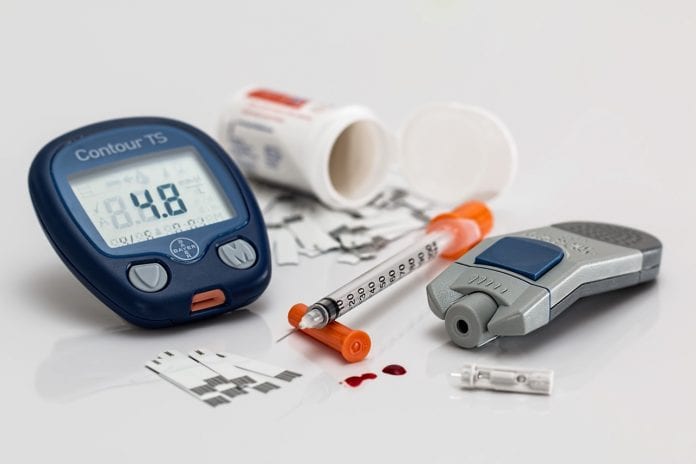Insulin resistance and pre-diabetes develop when a body isn’t able to use insulin properly, both of which increase your risk for developing diabetes. But what is the difference and how do you determine which one you have?
What is Insulin?
But first, let’s get down to basics, beginning with insulin. It’s a hormone that’s made by the pancreas, and helps glucose in your blood to enter the cells in your muscle, fat, and liver, where it’s used for energy. Glucose is released from the food you eat. When blood glucose (blood sugar) levels rise after you eat, your pancreas releases insulin into the blood, which then lowers blood glucose to keep it in the normal range.
What is Insulin-Resistance?
Insulin resistance is when the cells in your body don’t respond well to the hormone insulin. As a result, your pancreas makes more insulin to help glucose enter your cells. As long as your pancreas can make enough insulin to overcome your cells’ weak response to insulin, your blood glucose levels will stay in the healthy range. Insulin resistance increases your risk for progressing to diabetes. You could be insulin resistant for years without knowing it. In some cases, the pancreas eventually can’t keep up with demand and blood glucose continues to rise, which causes type 2 diabetes.
What is Pre-Diabetes?
Pre-diabetes is when your blood glucose levels are higher than normal but not yet high enough to be diagnosed as diabetes. It’s common in people who already have some insulin resistance or whose beta cells in the pancreas aren’t making enough insulin to keep blood glucose in the normal range.
What are the symptoms of insulin-resistance?
This condition typically doesn’t trigger any noticeable symptoms. So, it’s important that you regularly have your blood glucose levels checked.You can also look out for the classic diabetes symptoms, which include:
- extreme thirst or hunger
- feeling hungry even after eating
- increased or frequent urination
- tingling sensations in hands or feet
- feeling more tired than usual
- frequent infections
- evidence in blood tests
If you don’t have any obvious symptoms, blood tests can usually pick up insulin resistance, pre-diabetes, or diabetes.
How can I get tested for diabetes, pre-diabetes and insulin-resistance?
Testing for diabetes should at least begin at about age 40, along with the usual tests for cholesterol and other markers of health. If you have any of the above mentioned symptoms, or suspect insulin resistance or diabetes, blood testing is recommended. Testing for insulin resistance, pre-diabetes and diabetes can include:
Blood glucose level test: Fasting glucose testing determines the amount of glucose in the blood after an 8 hour fast (thus not affected by food). It establishes whether your blood glucose level is within the normal range, to screen and confirm diabetes and monitor for high (hyperglycaemia) and low (hypoglycaemia) blood glucose.
Diabetes test: Hemoglobin A1c (HbA1c) is a form of haemoglobin with attached glucose (glycated haemoglobin). This test measures the average amount of glucose in the blood over a period of 8 – 12 weeks. This result helps to establish the diagnosis of diabetes. It is also used to determine the risk for developing diabetes and for monitoring patients on treatment.
Lipogram/ lipid panel: A group of tests that measure specific lipids in the blood: the total cholesterol, lipid carrying proteins and triglycerides. It is used to screen for risk of developing heart disease (cardiovascular risk) and to monitor effectiveness of cholesterol lowering therapy or dietary interventions.
Booking all of the above tests for indicators of insulin resistance, pre-diabetes or diabetes is a mere click away on mybloodtest.co.za.















